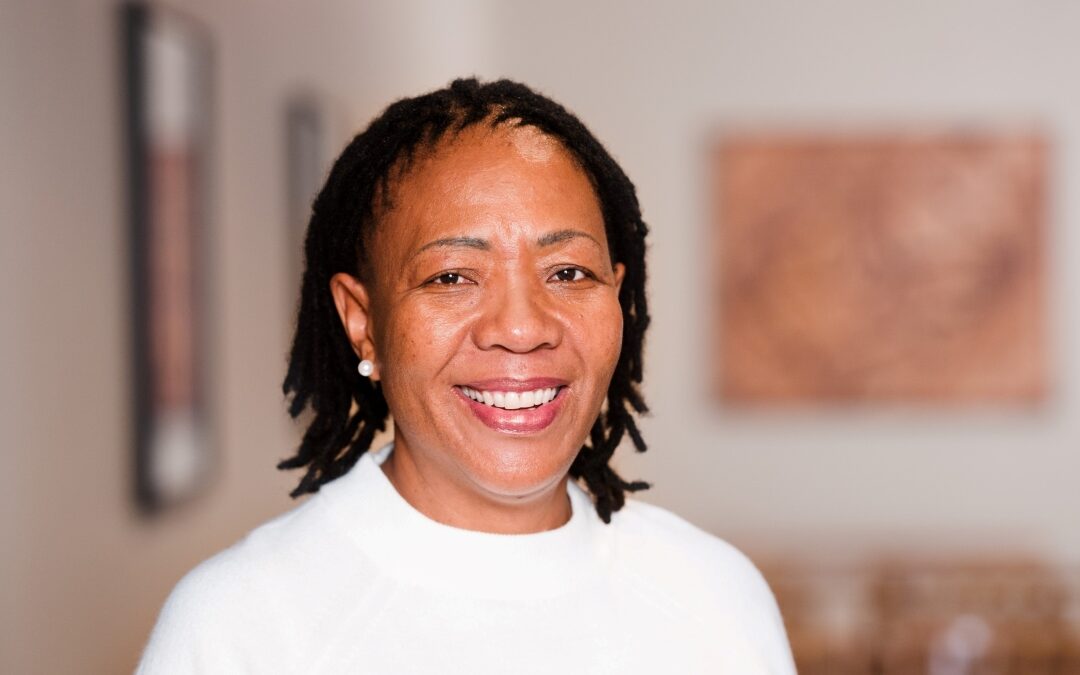In the late 1990s, HIV/AIDS devastated the sub-Saharan African nation of Botswana, infecting 25 percent of the population. Through a massive collaboration involving the country’s leaders, eminent local and international scientists, and determined partners spanning multiple disciplines and industries, Botswana successfully brought the epidemic under control—in the process becoming a global model for the treatment of HIV/AIDS.
Today, cancer poses the same kind of threat to Botswana’s people. The country’s severe shortage of cancer facilities, programs, and trained personnel translates into the grim statistic that roughly three out of four patients diagnosed with cancer in Botswana will die of the disease.
Building on the success of the country’s response to HIV/AIDS, the Botswana-Rutgers Partnership for Health—a collaboration between Botswana’s leadership and Rutgers Global Health Institute—is poised to address cancer in a similar way. Refeletswe Lebelonyane, a public health professional and primary care physician in Botswana, was extensively involved in the country’s fight against HIV/AIDS, and she’s one of the partnership’s many dedicated local collaborators working to address the cancer crisis. We asked her about her involvement in that burgeoning effort.
What are some of the similarities you’re seeing between the fight against HIV/AIDS in Botswana and the new cancer care and prevention initiative?
When I was working for the Botswana government, we conducted a nationwide needs assessment to find out where there were gaps in terms of treating HIV/AIDS. One of the gaps we found was a knowledge gap. Most health care workers, for instance, had difficulty recognizing the signs and symptoms of HIV/AIDS and didn’t know which treatment regimens to prescribe.
We did a similar needs assessment regarding cancer, and, once again, a knowledge gap has been identified as one of the major constraints. One example is that health care workers lack the specialized knowledge of cancer that’s needed to make a correct diagnosis. This affects everything from patients’ prognosis and treatment plans to their ongoing health care to their social and emotional well-being. By the time cancer patients present at the cancer facility, most of them are at an advanced stage where there is little that I can do for them.
The partnership’s cancer initiative is in its early stages. Have there been any immediate outcomes from the needs assessment?
I have been coordinating an effort to train medical officers who are generalists on how to do fine-needle aspiration and true-cut biopsies, so that patients can be diagnosed early and started on treatment early. We’ve already gone to seven of the hospitals that feed into Princess Marina Hospital [Botswana’s largest referral hospital, located in the country’s capital city of Gaborone] and trained 46 medical officers. Before this, it could be six months to a year, or even two years, between the diagnosis of cancer and the beginning of treatment. Now, I’ve seen that happen within two to six months. Currently, we are in the process of figuring out how to run this program out to the entire country.
How else are you addressing the knowledge gap?
In collaboration with health care providers and faculty across Botswana, we have started to develop a training curriculum focusing on cancer diagnosis and treatment. The Botswana-Rutgers Partnership for Health and our partner, Botswana’s Ministry of Health and Wellness, will oversee this training, which we hope to launch in June. The ministry will ensure that we meet with hospital management across the country to identify the doctors, nurses, and pharmacists who will participate.
How would you describe the larger vision of cancer care and prevention that the Botswana-Rutgers Partnership for Health is pursuing?
We want to work with the Ministry of Health and Wellness to have a cancer plan that covers the whole country and is integrated into the ministry’s budget, as we did with HIV. When I was working at CDC Botswana, I was a principal investigator for a large study called the Botswana Combination Prevention Project. That project demonstrated that starting treatment early, using a “see and treat” strategy, improves treatment outcomes. These findings contributed to a decision made by the World Health Organization to revise its guidelines. Now, through the Botswana-Rutgers partnership, we are working with clinical partners and the ministry to define national clinical practice guidelines for cancer care. We already have come up with four of them, for the types of cancer most common in Botswana: cervical, breast, colon, and head and neck. Two years ago, there were none, so I’m excited to be part of that.
Has COVID-19 complicated cancer care in Botswana?
The pandemic has really disrupted cancer care in Botswana. During the height of COVID, public transport wasn’t running. Many patients couldn’t travel to see their doctors. Even if they could, and their doctor suspected they might have cancer, they likely couldn’t get to one of the country’s four cancer sites. We hope our cancer trainings will help address the backlog that now exists.
– Leslie Garisto Pfaff

